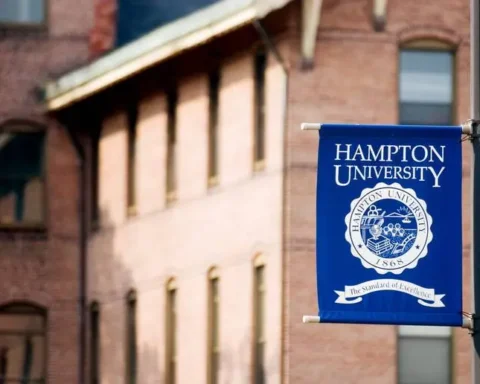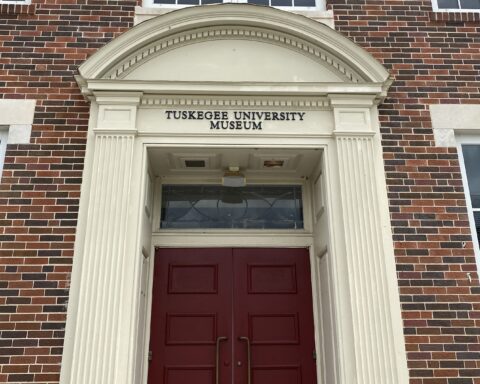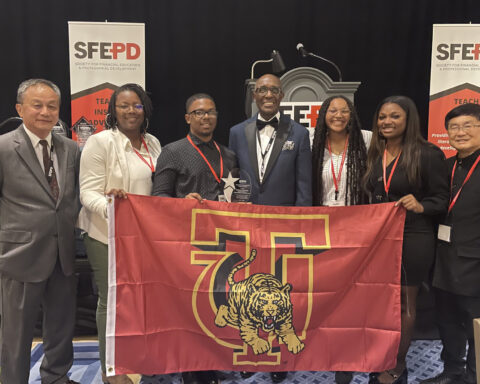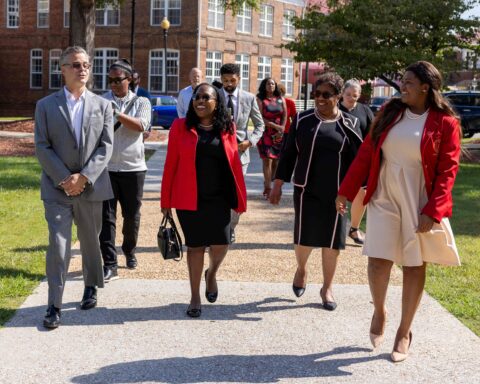By Brittney Dabney
Tuskegee University has been awarded $100,000 by the Microsoft Artificial Intelligence Initiative that allows researchers to leverage the technology to develop real-time resource management using reinforcement learning, one of the most discussed techniques in artificial intelligence (AI).
Drs. Mohammad Rahman and Fan Wu, faculty members of the Department of Computer Science, College of Business and Information Sciences, alongside Dr. S. Keith Hargrove, provost, are principal investigators for the project entitled, “Dynamic Cloud Resource Management for Cloud-Based Cyber-Physical Systems (CBCPS) with Reinforcement Learning (RL).”
“The project will build the faculty and institution research capacity in AI, providing students with the research opportunities in AI with faculty, and enhance the collaboration between Microsoft and Tuskegee University,” said Dr. Wu. “The award will greatly strengthen our existing cybersecurity program and enhance the developing data science program at Tuskegee University.”
The objective of the AI project is to apply and integrate Cyber-Physical Systems (CPS) with computational and physical capabilities through computation, communication, and control. The idea is to develop real-time resource management (RM) using reinforcement learning (RL) for multiple CPSs to maximize performance with the given cloud resources. RL is an approach to machine learning in which a software agent interacts with its environment, receives rewards, and chooses actions to maximize those rewards. According to Microsoft, its applications in real-world scenarios are leading to meaningful impact in many areas – from training autonomous systems to operate more safely and reliably in real-world environments, to making games more engaging and entertaining, to delivering more personalized information and experiences on the web.
“The proposed AI-related work will have the potential to significantly impact future research in maximizing performance for real-time resource management with the given cloud resources, making it faster, more accurate, and more efficient,” said Dr. Wu.
Within one year of the project, Dr. Hargrove and his team will develop a model incorporating the dynamic nature of cloud resources, communication networks, and physical systems. Based on the development, the project team will create a test bed to validate the RM technique to advance further the field of AI/ML research and education.
The AI project complements existing research initiatives at the university in the College of Business and Information Science and the College of Engineering, which key objective is to bring together a better-integrated future that creates the broadest possible benefit for humanity.





